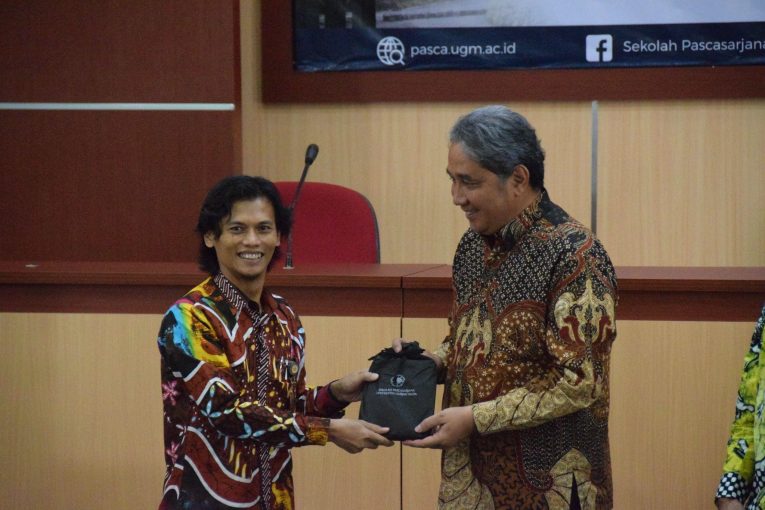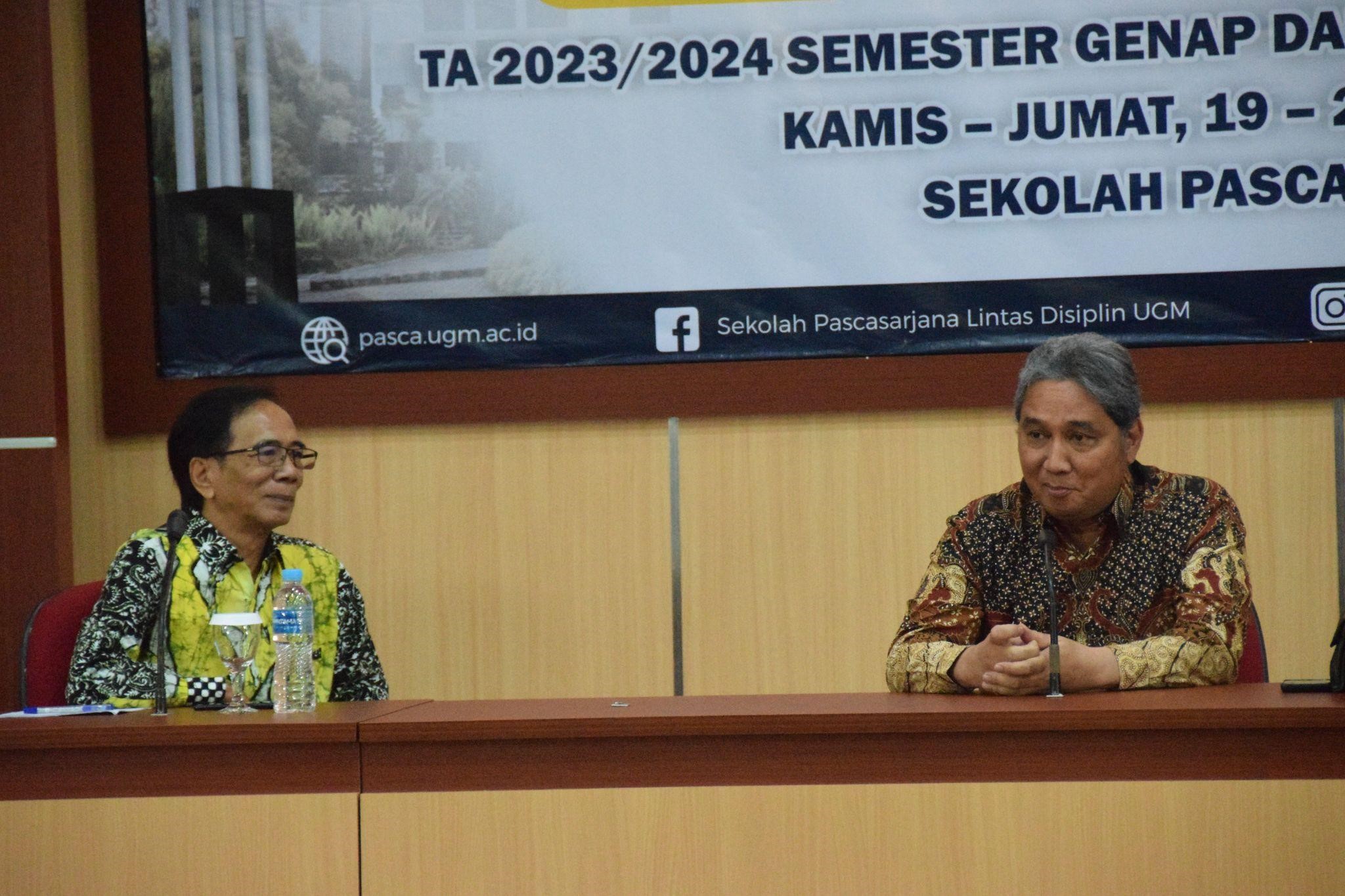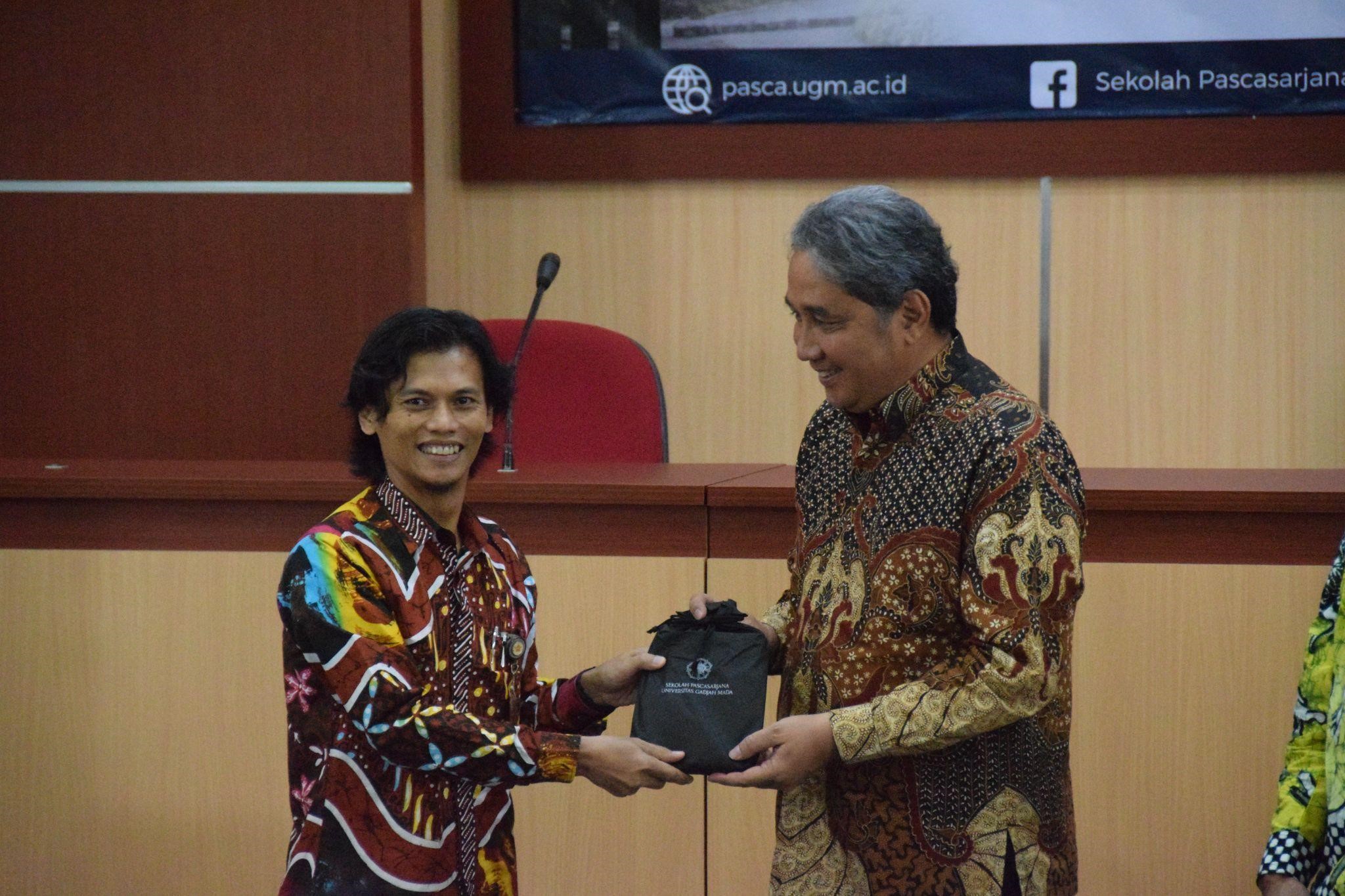
The Director General of Culture (Ditjenbud), Ministry of Education, Culture, Research, and Technology, Hilmar Farid, Ph.D., delivered a public lecture to hundreds of new students at the Graduate School (SPs), Gadjah Mada University (UGM) about the future of administration and policy in the cultural sector during the New Student Welcome event for the 2023/2024 Academic Year Semester II and the 2024/2025 Academic Year Semester I. The event was held on Thursday (September 19th) at the 5th Floor Auditorium of the UGM Graduate School Building.
Discussing culture encompasses not only aesthetic performances like dance but also various aspects of our lives. In his speech, Hilmar Farid revealed significant changes in state administration impacting the cultural sector, including regional autonomy that has shifted cultural authority from the central government to local governments; changes in public services that are results-based; and the streamlining of bureaucracy that allows strategic government positions to be filled by individuals outside the civil service.
“This bureaucratic reform occurs due to the Weberian bureaucracy focused on hierarchy, which is less suitable for the cultural sector that demands innovation. Currently, the hierarchical system is not entirely eliminated; hierarchy remains but is combined with a new public management approach based on results and new public service that emphasizes public participation,” he stated.
Another important topic discussed was the establishment of Public Service Agencies (BLU) for Museums and Cultural Heritage. This policy aims to manage all museum and cultural heritage assets under one roof, ensuring standardized services. “The implementation of BLU carries the risk of commercializing public services that prioritize revenue; thus, the role of leadership is crucial,” he added.
Meanwhile, in cultural policy, there is a debate surrounding the issuance of Law No. 5 of 2017, which is seen as regulating and limiting culture. According to Hilmar Farid, this policy no longer discusses the definition of culture but instead shapes the amorphous cultural objects. This regulation focuses on governance, including the protection, development, utilization, and cultivation of cultural objects.
During this opportunity, Hilmar Farid received questions from attending students. The Q&A session, moderated by Dr. Lono Lastoo Simatupang, M.A., could not address all inquiries, leading Hilmar Farid to invite students to join a discussion forum via social media platform X.
In addition to the public lecture from Ditjenbud, the new student welcome event at UGM Graduate School, which took place over two days (September 19th – 20th, 2024), also featured other speakers, including UGM Rector for the 2017-2022 period, Prof. Ir. Panut Mulyono, M.Eng., D.Eng., IPU., ASEAN Eng.; Dr. Yohanes Suryanto; and Prof. Dra. Yayi Suryo Prabandari, M.Si., Ph.D., Deputy Dean for Academic Affairs, Student Affairs, and Cooperation, as well as Deputy Dean for Finance, Assets, and Human Resources, SPs UGM.
Author: Asti Rahmaningrum


